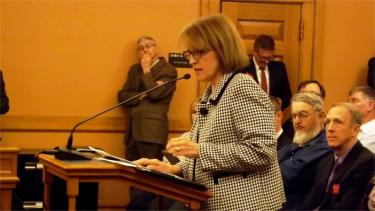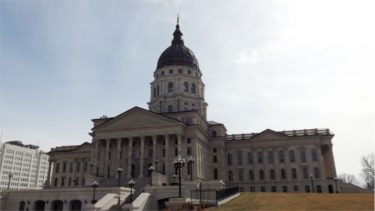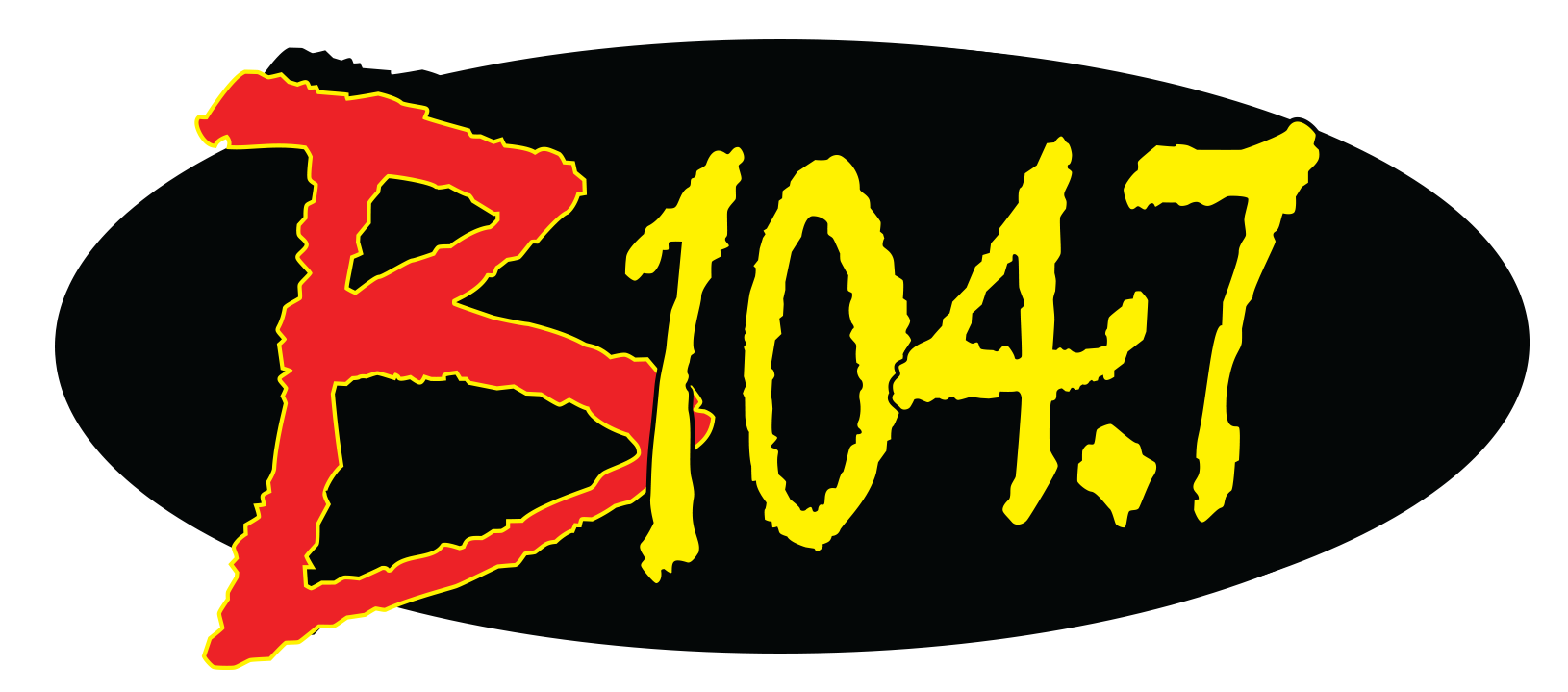

TOPEKA — Riley County leaders didn’t leave the State Capital Building Wednesday with complete euphoria, but maybe with a feeling of slight progress.
And when it comes to the headbutting local governments have experienced with the state legislature, slight progress is a feather the county will put in its cap.
Hearings were heard on two different state-imposed property tax lid bills that would make adjustments to the law set to come into play on Jan. 1, 2018, and force a public vote on local budgets if taxes exceed the rate of inflation.
Local leaders in Riley County, Manhattan and across the state have said the legislature hasn’t exhibited the budgeting clout to pass laws to regulate local commissions.
Riley County officials along with Manhattan Area Chamber of Commerce president Lyle Butler, Pawnee Mental Health Services executive director Robbin Cole and local leaders from across the state were in attendance Wednesday and testified during those hearings.
“I think they were open to hearing about the difficulties (the tax lid) causes for local government,” Riley County clerk Rich Vargo, who testified on behalf of the county, said. “And also understanding it is taking away local control and local decisions when they place such a restrictive tax lid on local governments.”
Butler said the tax lid could hamper Manhattan’s ability to continue to create needed infrastructure around the National Bio and Agro-defense Facility, otherwise known as NBAF.
Cole said in hearings that a tax lid could damage momentum gained for a regional mental healthcare center between county and city partners.
Vargo, Butler and Cole were joined by Riley County commissioner Robert Boyd, county counselor Clancy Holeman and county appraiser Greg McHenry, who were also in attendance.

The first hearing with the Senate Assessment and Tax Committee covered Senate Bill 316, which looks to fast-track the tax lid with a starting date of July 1 of this year. It also takes away all the exemptions counties and cities were comfortable with in the original bill.
SB316 is opposed by Riley County officials, who were also joined by representatives from the Kansas Association of Counties and the League of Kansas Municipalities. Vargo’s testimony focused on this bill, which he said would set-up a nearly impossible election time frame to work if such a question considering a vote on the budget was to be required on a ballot.
The second hearing later in the afternoon was with the House Tax Committee and covered House Bill 2609, which county and city leaders were in support of. This bill returns exemptions — such as new infrastructure costs, essential serves, expenses related to natural disasters, etc. — to the tax lid and includes the use of the Municipal Cost Index (MCI) as a way to measure cost increases local governments would use as a metric to compare mil levy raises to, rather than just Consumer Price Index (CPI).
MCI — which includes CPI — also factors construction material and office equipment costs into the equation when local governments compare their costs to the average prices of the goods they purchase. CPI, local leaders say, is too narrow of a metric for local governments to use, since those variables are limited to prices of bread, eggs, milk and utilities — or in other words, things a household buys instead of the more broad expenses a municipality sees.
Rep. Tom Phillips, a Manhattan Republican, is on the House Tax Committee and said after the hearing he was understanding of the frustration from local leaders.
“Ideally, I don’t think there should be a tax lid on local governments,” Phillips said from his office in the Statehouse, just a slight walk away from the room the hearing was in. “I think our local officials are held accountable through the local citizens whether they’re doing a good job or not, and that’s the best mechanism to ensure government is closest to the people.”
A chord was struck with some local leaders during the Senate hearing, when Luke Bell of the Kansas Association of Realtors, who has pushed the tax lid, told the committee chairman he’d tried to meet with Kansas Association of Counties officials to no avail.
After the hearing, KAC general counsel Melissa Wangemann disputed that claim.
“We certainly have never been approached by Mr. Bell to discuss this issue,” she said.
Randall Allen, the executive director of the KAC, said there may be a compromise between the two bills.
Allen said that compromise could include the return of some tax lid exemptions and a slightly later start than what the language in the Senate bill describes, with an implementation of the tax lid taking place instead on Jan. 1, 2017 rather than July of this year.
The post Riley County joins local leaders for tax lid hearings appeared first on 1350 KMAN.

